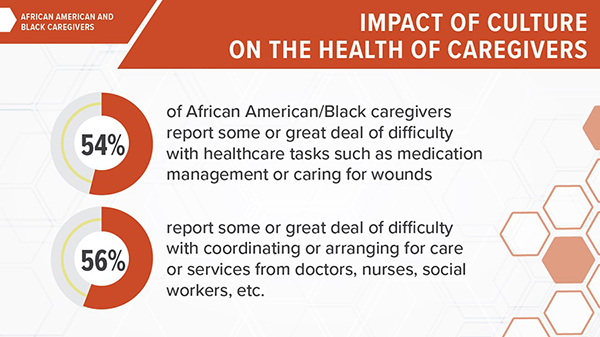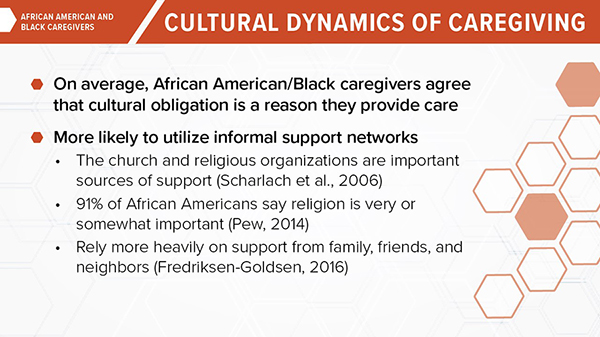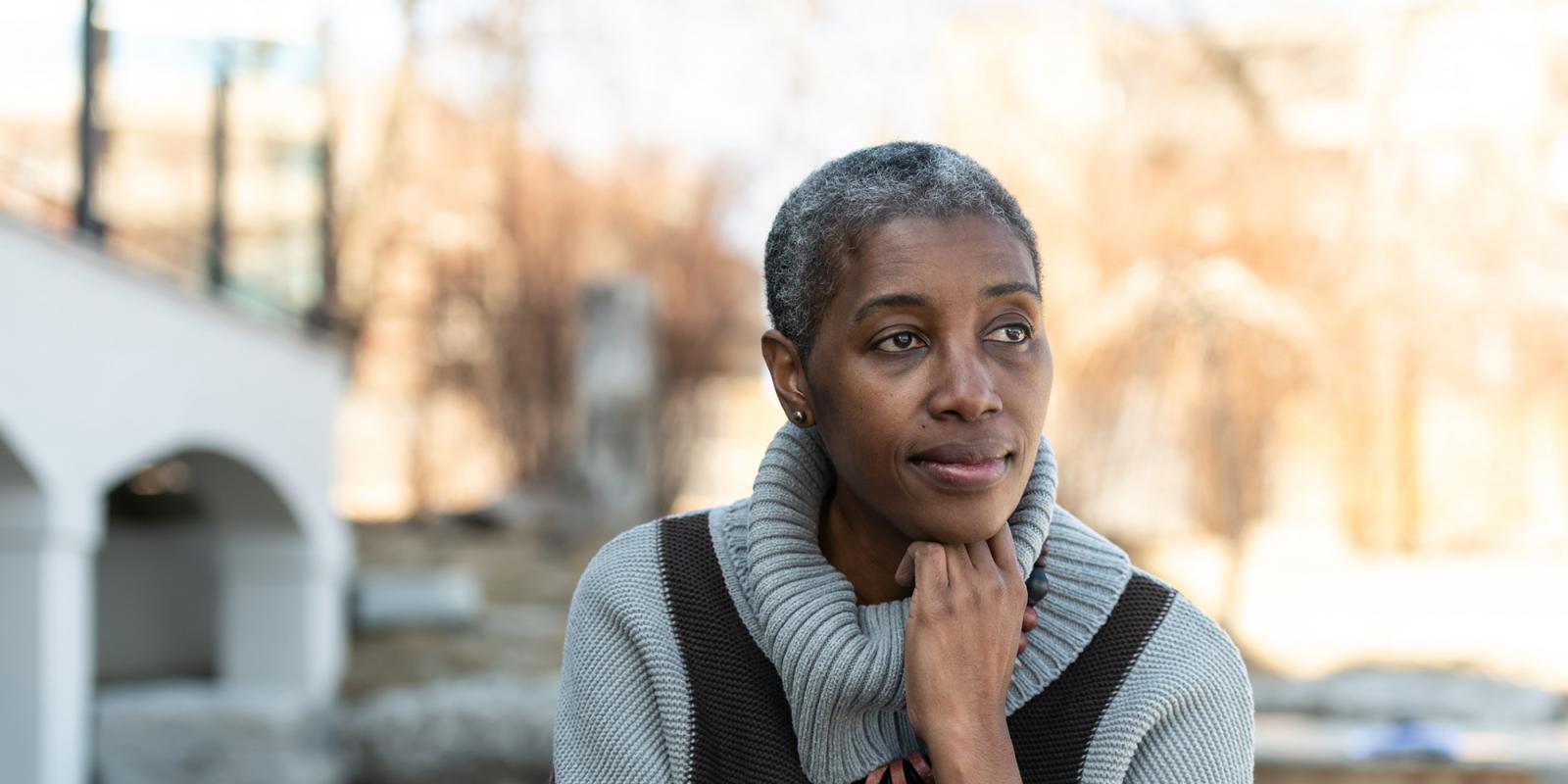Editor’s Note: This article represents the first in a series by the Diverse Elders Coalition (DEC) to be published in Generations Today. Articles are connected to ASA-hosted webinars; see end of article to register. The series of articles by the DEC highlights research from The Caregiving Initiative, a multiyear research project funded by The John A. Hartford Foundation.
As we navigate the COVID-19 pandemic, it is becoming increasingly clear that the virus disproportionately affects communities of color, American Indian, Alaska Native and LGBT communities. Of those affected, perhaps one of the most overlooked groups are diverse family caregivers who may be simultaneously caring for families, aging loved ones and themselves during the pandemic. Particularly for African American and Black communities, the caregiving role may lead to worse health outcomes due to the lack of formal supports and increased barriers to accessing culturally competent services. Needless to say, these inequities have long-existed and have only gotten worse during the pandemic—a trend that we have identified in our research, The Caregiving Initiative.
Financial Support and Affordable, Competent Respite Care
The need for support has never been greater for African American caregivers, who are becoming older, are more likely to be isolated and to experience care-related strain. More than a fifth of African American and Black caregivers pay for care-related expenses, while 48.1 percent of them are less likely to be working part- or full-time. Additionally, more than a fourth of African American caregivers’ report having no family, friends or neighbors to help them, which makes them solely responsible for all caregiving duties and increases their risk of care-related strain. Our survey findings revealed that about a third of African American and Black caregivers report being more isolated, experience mental health strain and physical health strain due to caregiving.
Although causality needs to be established, our survey findings provide a snapshot of current caregiver health outcomes, highlighting the need for increased financial supports and culturally competent respite care to help mediate care-related strains and improve health outcomes. But many barriers and challenges remain, making it difficult for African American and Black caregivers to receive necessary support. In particular, systemic injustices and historical discrimination have deterred many African American and Black caregivers from using formal support services.
“Healthcare providers aren’t patient, don’t listen and tend to make assumptions about African American and Blacks,” noted one African American caregiver in the survey.

Culturally Competent Caregiver Training and Formal Assistance
Systemic injustice and historical discrimination from service providers and institutions may deter African American and Black caregivers from using formal services for training, respite care and for additional assistance. Such behavior may have long lasting consequences, negatively impacting both caregivers and their loved ones.
In our survey, it was evident that a majority of African American and Black caregivers report a great deal of difficulty with healthcare-related tasks, which may be a result of the lack of caregiver training within African American and Black communities. Furthermore, on average, diverse family caregivers reported using only 2.5 formal supportive services.
It is clear that African American and Black caregivers need more opportunities for caregiver training and access to culturally competent supportive services. However, service providers must work to reestablish trust among African American and Black caregivers to offset years of systemic injustice and historical discrimination that has deterred many from using formal services.
Implications during COVID-19
In 2020, we conducted a preliminary literature review to learn more about the implications of our survey findings during the COVID-19 pandemic. Unsurprisingly, we learned that many of the primary stressors of African American and Black caregivers have been exacerbated by the COVID-19 pandemic. As mentioned previously, and as we identified through our research, this may worsen health outcomes for African American caregivers and ultimately for their aging loved ones—something we have already seen as COVID-19 disproportionately affects African American and Black communities. African American older adults are three times more likely to die from COVID-19 than are their white counterparts. The need to support African American and Black caregivers has never been greater. Service providers must expand existing infrastructures to adequately provide for our communities.

Best Practices to Better Support African American and Black Caregivers
To meet the needs of African American and Black caregivers, service providers need to reestablish trust and harness relationships with trusted community leaders, as African American and Black caregivers are more likely to use informal support networks for services. Below are some best practices outlined from our cultural competency training curriculum that may help service providers to better serve African American and Black caregivers.
- Recruit, promote and support a diverse interdisciplinary workforce that understands and represents the culture of the community you serve;
- Partner with community-based organizations and faith-based organizations or institutions to identify caregivers and to disseminate informational materials;
- Provide culturally and linguistically competent in-office materials to acknowledge caregivers and to deliver health information and training.
Additionally, service providers need to “understand African Americans/Blacks are not the same. They are not homogeneous. Every caregiver, care recipient and family [have] different needs and desires. Caregivers want healthcare providers to stop and ask them about their needs,” as one focus group participant respondent said.
We must acknowledge and listen to African American and Black caregivers before we are able to address their needs.
Ocean Le, MS, is program coordinator at the Diverse Elders Coalition in New York City. Angie Boddie, MS, is director of Health Programs at the National Caucus and Center on Black Aging in Washington D.C.
To attend a DEC training on the needs of diverse caregivers, register for this webinar on Dec. 17, “Caring for Those Who Care: Meeting the Needs of LGBT Caregivers.” SAGE will be co-facilitating the first of the DEC’s monthly trainings in the Caring for Those Who Care: Meeting the Needs of Diverse Family Caregivers Series.













